Worried About Food Poisoning? These Are the 10 Riskiest Foods to Eat Right Now Here's the safest way to handle them—and when to avoid them altogether

A new report ranked the 10 foods linked to the largest recalls and foodborne illness outbreaks in 2024
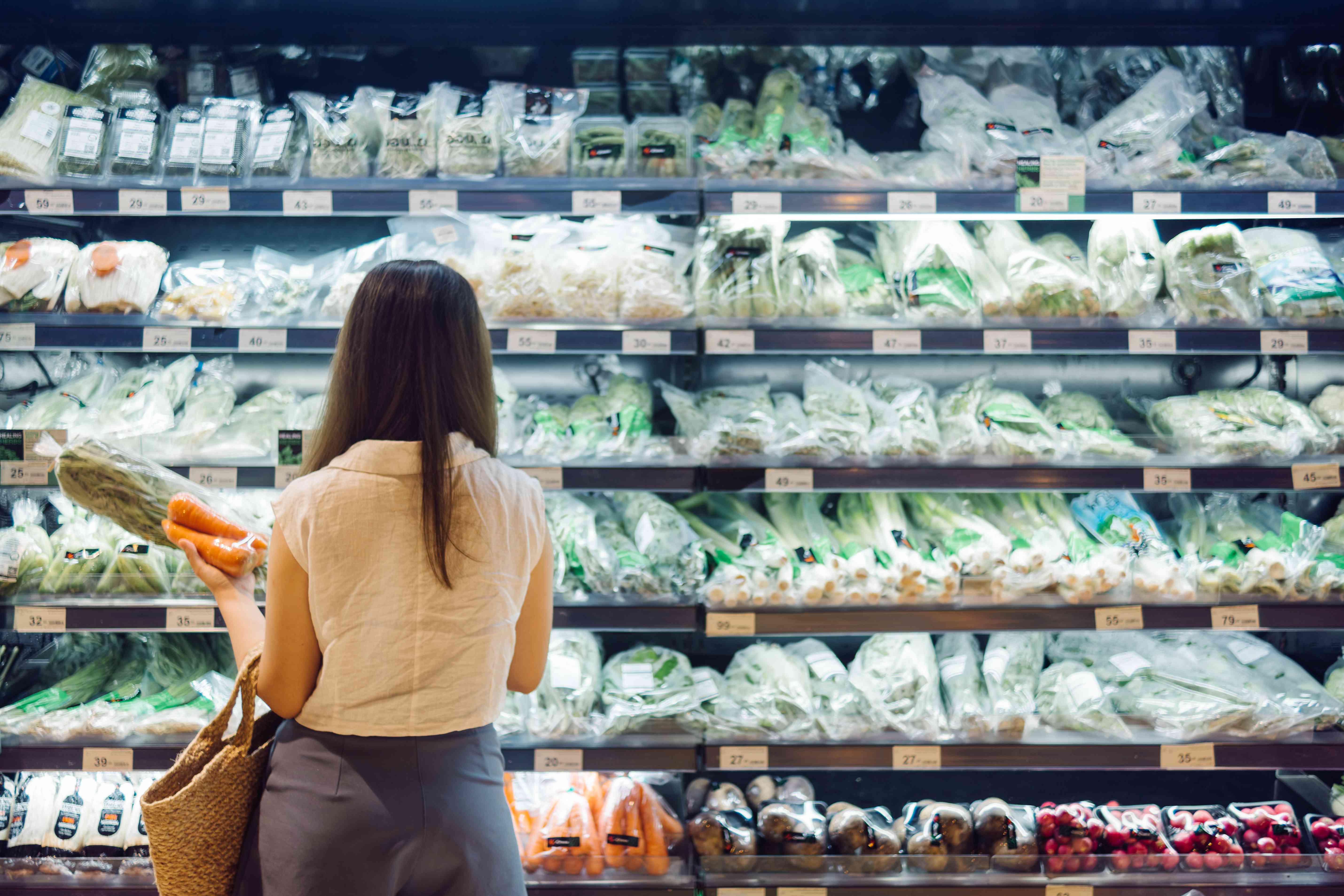
somboon kaeoboonsong / Getty Images
- Consumer Reports ranked the 10 foods linked to the largest recalls and foodborne illness outbreaks in 2024.
- Many of these foods are higher risk because of how they’re grown or processed, or because of how they’re served.
- Cook and handle these foods carefully, and consider avoiding them if you’re at risk of severe illness from foodborne pathogens.
2024 was a major year for food recalls. In fact, hospitalizations and deaths from contaminated food in 2024 doubled from the year prior.
In the wake of so many headlines about foodborne illness outbreaks, you may be wondering which foods were the top culprits—a new report identified 10.
Each year, Consumer Reports pulls together the top 10 foods linked to the largest recalls and foodborne illness outbreaks in the U.S. While there’s no telling which foods may cause outbreaks in 2025, the report warned of reasons why these foods could be especially risky.
1. Deli Meat

bhofack2 / Getty Images
- Illnesses: 165
- Hospitalizations: 87
- Deaths: 10
- Bacteria: Listeria, Salmonella
Why They’re Risky
Deli meat poses a safety risk because of two main factors: It’s highly processed and served cold.
The meat has plenty of chances to pick up bacteria, especially Listeria, as it’s processed at a factory and handled at deli counters. Deli meat is also kept and served cold, which means there’s no opportunity to kill bacteria after the meat has been cooked.
Notable 2024 Outbreaks
Last summer, Boar’s Head recalled 7 million pounds of ready-to-eat meat and poultry products over potential Listeria contamination. The deli meat was linked to a serious foodborne illness outbreak, with 60 hospitalizations and 10 deaths across 19 states.
Charcuterie meats from Fratelli Beretta—sold at Aldi, Publix, and other retailers—were also recalled in early 2024 after the meats were identified as the source of a 104-person Salmonella outbreak.
How to Protect Yourself, According to Consumer Reports
- Heat deli meat to kill bacteria.
- Buy prepackaged cold cuts, which are not exposed to potential pathogens at the deli counter.
- For people at risk of a serious illness from foodborne pathogens, consider avoiding deli meat altogether.
2. Cucumbers
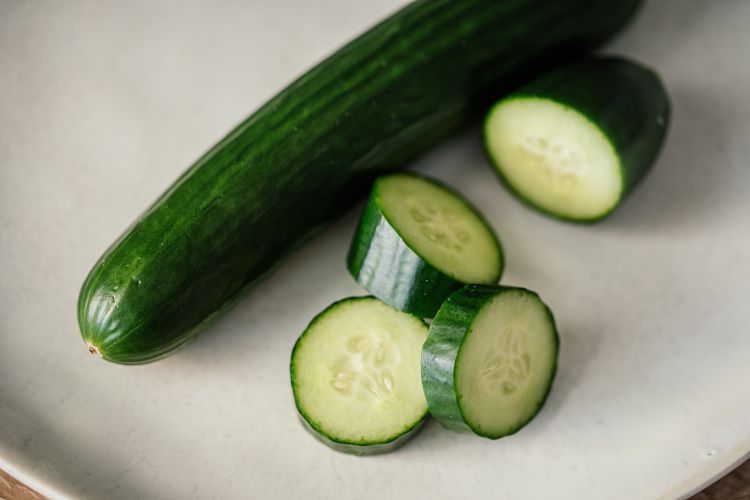
Anna Mardo / Getty Images
- Illnesses: 664
- Hospitalizations: 173
- Deaths: 0
- Bacteria: Salmonella
Why They’re Risky
Per Consumer Reports, cucumbers can become contaminated with bacteria as they’re growing. Runoff from any nearby livestock may contain animal waste, which can contaminate a farm’s soil or irrigation water.
Notable 2024 Outbreaks
Cucumbers were the source of two major Salmonella outbreaks in 2024.
Last summer, cucumbers from Bedner Growers and Thomas Produce Company caused a 551-person outbreak. Then in the winter, 113 people got sick from sliced cucumbers.
Cucumbers from Bedner Growers have also been linked to another Salmonella outbreak this month, with 26 infections across 15 states.
How to Protect Yourself, According to Consumer Reports
- Choose cucumbers without bruises or damaged skin, as bacteria can more easily contaminate those areas.
- Wash and peel produce to further reduce the risk of bacteria.
3. Raw Milk and Raw Milk Cheese
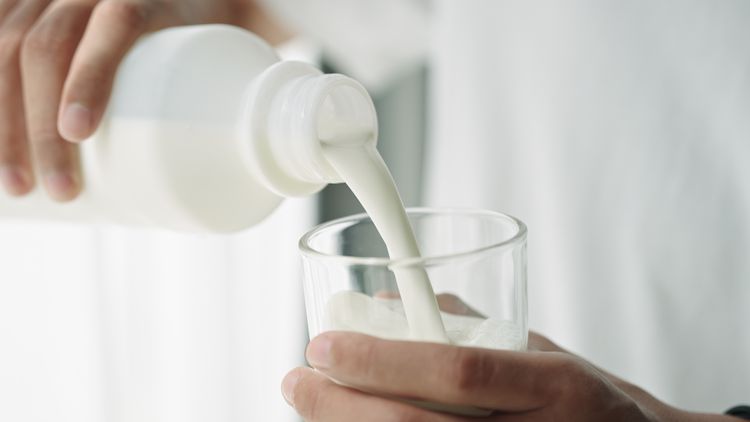
pocketlight / Getty Images
- Illnesses: 182
- Hospitalizations: 29
- Deaths: 0
- Bacteria: Salmonella, E. coli
Why They’re Risky
Harmful bacteria can grow in raw milk, particularly if the milk comes into contact with infected udder tissue, contaminated dairy equipment, or other pathogens in soil, water, or cow manure. Pasteurization, the process of heating milk to a high temperature for a certain amount of time, kills any harmful bacteria.
But because raw milk and cheeses are not pasteurized, they increase your risk of being exposed to bacteria.
Notable 2024 Outbreaks
Unpasteurized dairy products from Raw Farms in Fresno, California, were responsible for two foodborne illness outbreaks last year. Raw milk sickened at least 165 people with Salmonella infections, and raw cheddar cheese caused an 11-person E. coli outbreak.
How to Protect Yourself, According to Consumer Reports
- Don’t consume raw milk.
- Raw milk cheese should be aged for at least 60 days before consumption, which lessens (but doesn’t eliminate) the risk of bacteria.
4. Cotija and Queso Fresco Cheese
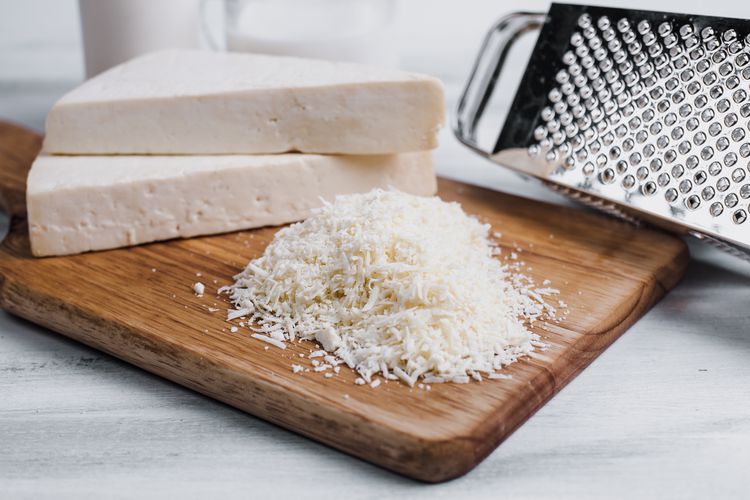
Marcos Elihu Castillo Ramirez / Getty Images
- Illnesses: 26
- Hospitalizations: 23
- Deaths: 2
- Bacteria: Listeria
Why They’re Risky
Soft cheeses have high water content and low acidity, making them prime targets for contamination from bacteria, including Listeria.
Notable 2024 Outbreaks
Last February, the Centers for Disease Control and Prevention and the Food and Drug Administration tracked down the source of a decade-long Listeria outbreak: queso fresco and cotija cheese from Rizo-López Foods.
The recalled cheeses infected 26 people with Listeria, causing 23 hospitalizations and two deaths between 2014 and 2023.
How to Protect Yourself, According to Consumer Reports
- Avoid soft cheeses that have not been cooked, especially if you're at risk of severe illness from foodborne pathogens.
- Wash your hands, cooking utensils, and surfaces after handling soft cheeses.
5. Eggs

krblokhin / Getty Images
- Illnesses: 93
- Hospitalizations: 34
- Deaths: 0
- Bacteria: Salmonella
Why They’re Risky
Eggs are a target for Salmonella. The bacteria can contaminate the inside of an egg as it’s developing, or the eggshell as it’s being laid.
Notable 2024 Outbreaks
This past fall, Milo’s Poultry Farms recalled millions of eggs over potential Salmonella contamination. The eggs were linked to a 93-person Salmonella outbreak across 12 states.
Then in December, nearly 260,000 eggs sold at Costco were also recalled for Salmonella, though no illnesses were reported.
How to Protect Yourself, According to Consumer Reports
- Do not consume eggs with broken shells.
- Wash your hands after handling eggs.
- Cook eggs until both the yolk and white are firm to kill bacteria.
- Use pasteurized eggs when any preparing dishes that call for uncooked eggs.
6. Onions
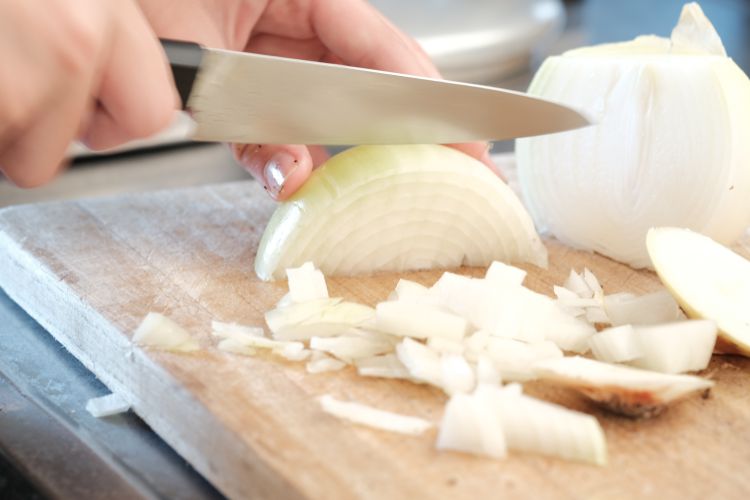
Keiko Iwabuchi / Getty Images
- Illnesses: 104
- Hospitalizations: 34
- Deaths: 1
- Bacteria: E. coli
Why They’re Risky
Similar to cucumbers, bacteria in soil or irrigation water can contaminate onions during the growing process.
Notable 2024 Outbreaks
Slivered onions were identified as the source of the E. coli outbreak linked to McDonald’s Quarter Pounders last fall. The contaminated produce led to 104 E. coli infections, including 34 hospitalizations and one death.
How To Protect Yourself
- Choose produce without bruises or damaged skin.
- Buy whole onions and cut them yourself, as pre-sliced onions can raise the risk of bacterial contamination.
- Peel and discard the first few layers of an onion before chopping, as they’re more likely to be contaminated than the inner layers.
7. Leafy Greens
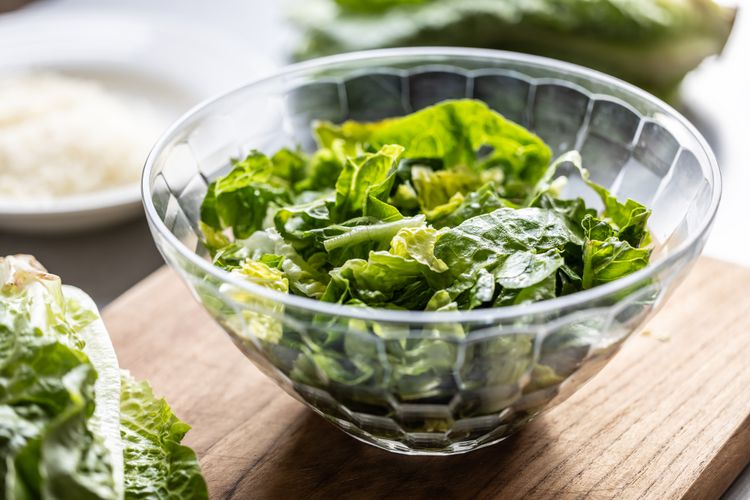
SimpleImages / Getty Images
- Illnesses: 117
- Hospitalizations: 36
- Deaths: 1
- Bacteria: E. coli
Why They’re Risky
As with other produce, livestock runoff can contaminate the soil and irrigation water on farms growing leafy greens such as lettuce or spinach.
Notable 2024 Outbreaks
Last fall, an E. coli outbreak linked to romaine lettuce sickened 89 people in 15 states. The outbreak included 36 hospitalizations, seven cases of hemolytic uremic syndrome—a serious kidney disease—and one death.
How to Protect Yourself, According to Consumer Reports
- Switch to hydroponic lettuce, which is grown in greenhouses and less likely to be contaminated from livestock runoff.
- When preparing heads of lettuce, discard the outer layers, which are at a greater risk of pathogen exposure.
8. Organic Carrots
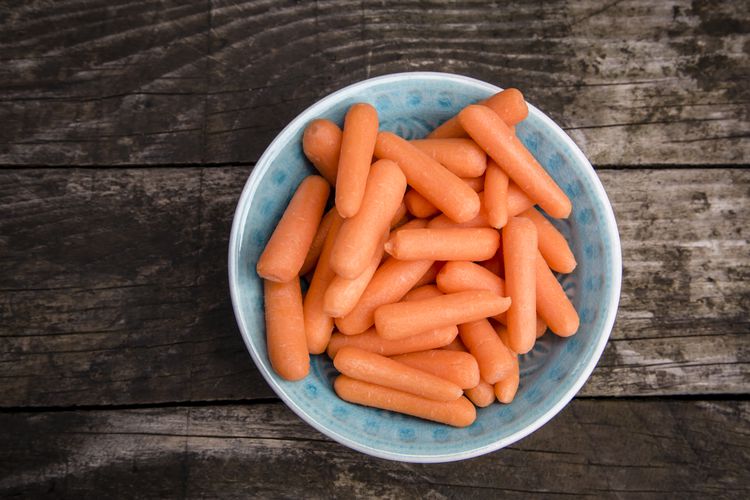
Westend61 / Getty Images
- Illnesses: 48
- Hospitalizations: 20
- Deaths: 1
- Bacteria: E. coli
Why They’re Risky
Like other produce, carrots may be exposed to contaminated soil and irrigation water as they’re grown. Carrots can also become contaminated at some point in the field or processing plant.
Notable 2024 Outbreaks
Grimmway Farms recalled organic whole and baby carrots sold under many major brands between August and October 2024. The carrots were linked to an E. coli outbreak in 19 states that left 48 people ill and one person dead.
How to Protect Yourself, According to Consumer Reports
- Cook carrots to kill any lingering bacteria.
- Wash and peel produce to further lower the risk of contamination.
9. Organic Basil
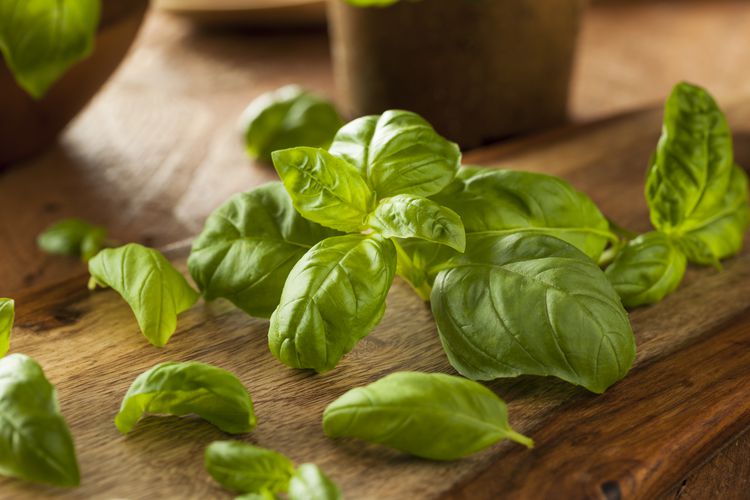
bhofack2 / Getty Images
- Illnesses: 36
- Hospitalizations: 4
- Deaths: 0
- Bacteria: Salmonella
Why They’re Risky
Similar to leafy greens, basil is subject to contamination from bacteria in soil or irrigation water. It’s also typically eaten raw, so pathogens aren’t killed during the cooking process.
Notable 2024 Outbreaks
Last spring, fresh, organic basil from Infinite Herbs was connected to a 36-person Salmonella outbreak in 14 states.
How to Protect Yourself, According to Consumer Reports
- Rinse herbs before you use them.
- Cook raw herbs if you can before consuming them.
10. Cooked Poultry and Meat
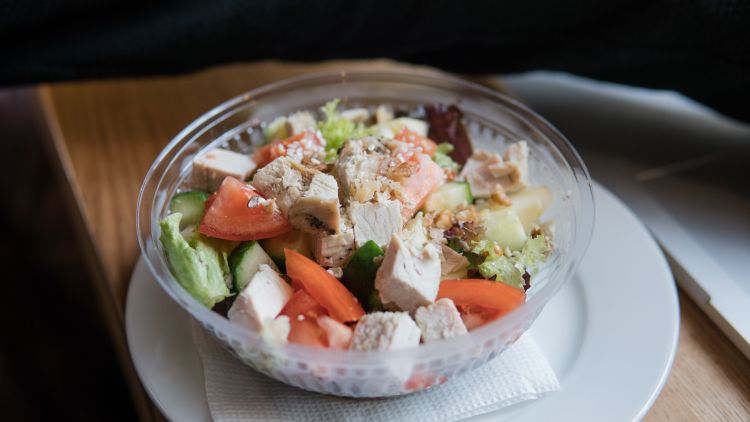
VasilevKirill / Getty Images
- Illnesses: 0
- Hospitalizations: 0
- Deaths: 0
- Bacteria: Listeria
Why They’re Risky
Like deli meat, ready-to-eat poultry and meats are highly processed, so they have many opportunities to pick up pathogens after they've been cooked.
Notable 2024 Outbreaks
BrucePac recalled almost 12 million pounds of pre-cooked meat and poultry products last fall. The ready-to-eat meats—sold at major retailers including Trader Joe’s, Kroger, and Walmart—were potentially contaminated with Listeria.
How to Protect Yourself, According to Consumer Reports
- Heat all frozen foods.
- Refrigerate packaged sandwiches and salads with pre-cooked meat until you’re ready to eat them.
 Julia Landwehr
Julia is the associate news editor for Health, where she edits and publishes news articles on trending health and wellness topics. Her work has been featured in The Heights, an independent student newspaper at Boston College, and Minnesota Monthly.
learn more
Read more:
Julia Landwehr
Julia is the associate news editor for Health, where she edits and publishes news articles on trending health and wellness topics. Her work has been featured in The Heights, an independent student newspaper at Boston College, and Minnesota Monthly.
learn more
Read more:
This story originally appeared on: Health News - Author:Jenna Anderson
















